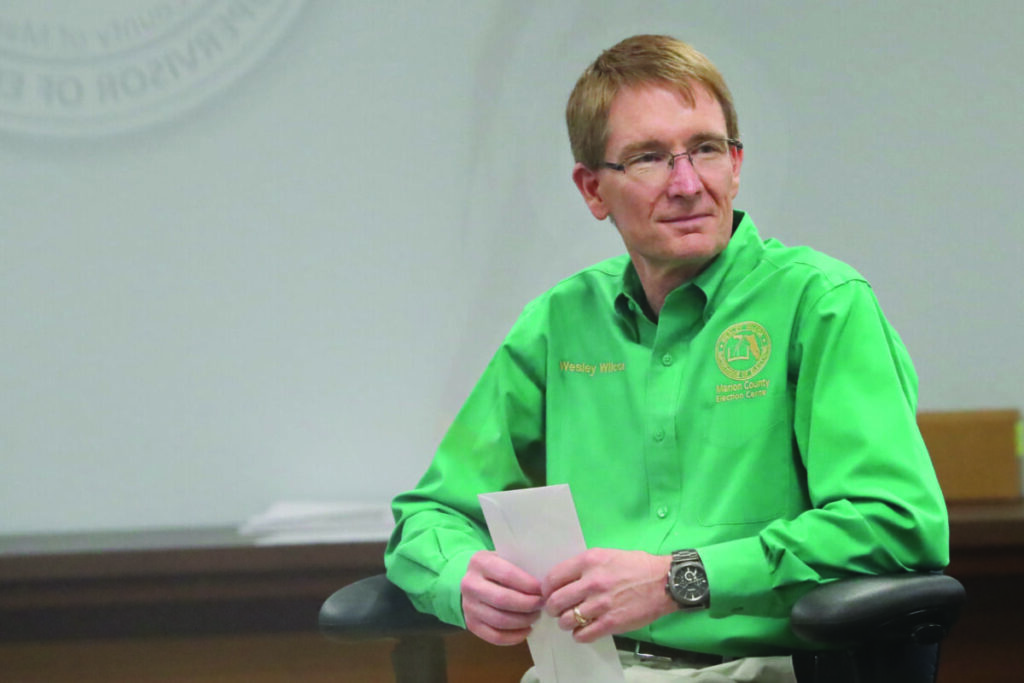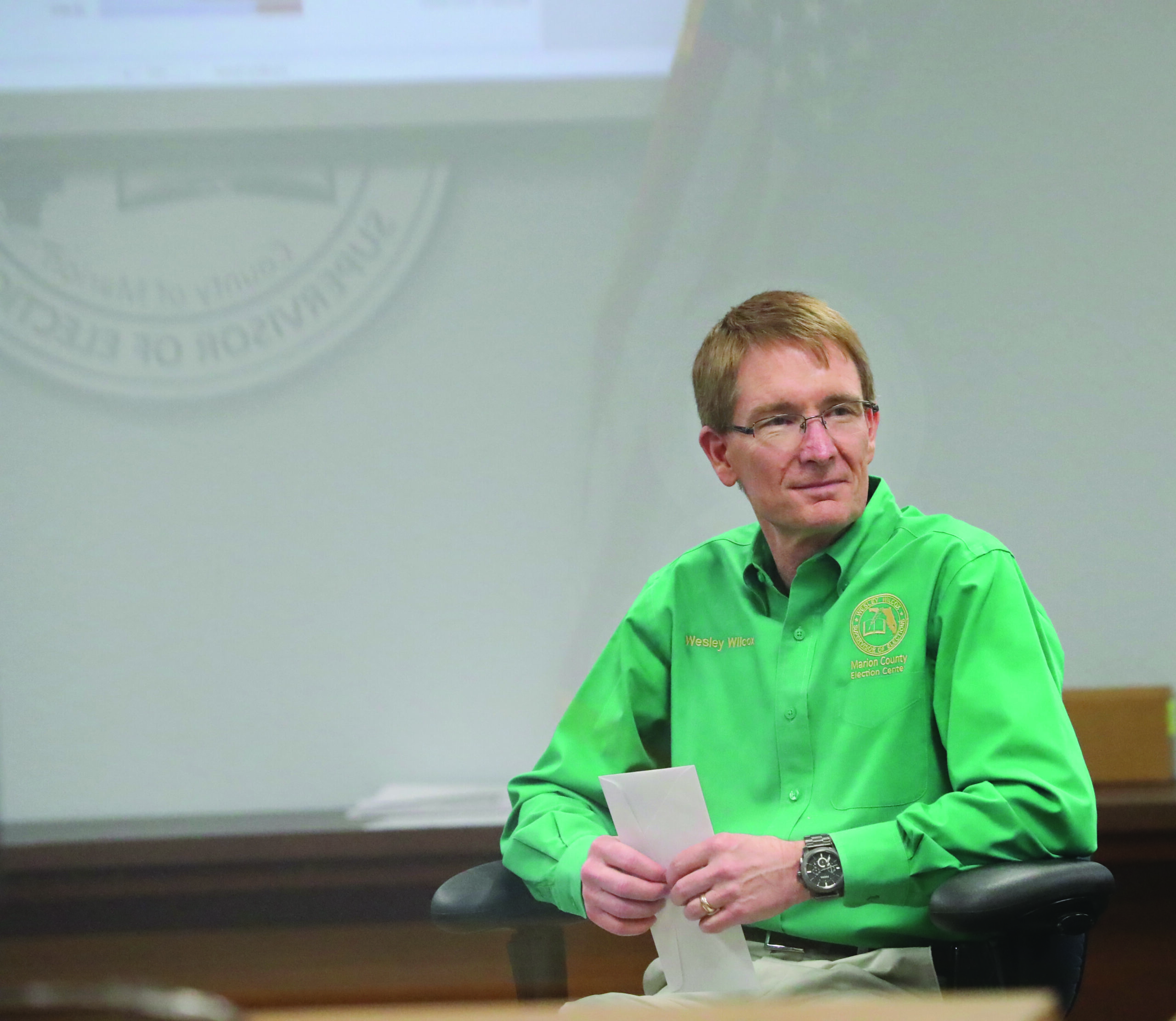A quick look at election contributions

Supervisor of Elections Wesley Wilcox looks over Primary Election results as they come into the Marion County Election Center in Ocala, Fla. on Tuesday, August 18, 2020. [Bruce Ackerman/Ocala Gazette] 2020.

Supervisor of Elections Wesley Wilcox looks over Primary Election results as they come into the Marion County Election Center in Ocala, Fla. on Tuesday, August 18, 2020. [Bruce Ackerman/Ocala Gazette] 2020.
No doubt, the amount of money raised and spent in the 2021 election for the City of Ocala met some records.
On the heels of this election concluding, we followed up with questions to Marion County Supervisor of Elections Wesley Wilcox to better understand regulations surrounding local campaign contributions.
The information we share below does not apply to state or federal races and only applies only to local, individual candidate campaigns, whether those donations originate from an individual, company, or Political Action Committee (PAC).
First donations to a local campaign
Before a candidate can take any form of contributions, Wilcox noted their campaign must be official, which means a candidate must file a form DS-DE 9 – Appointment of Campaign Treasurer and Designation of Campaign Depository for Candidates. From that point on, every donation must be documented and reported to the Supervisor of Elections office regularly.
Last donations to a local campaign
While individuals, businesses, or PACs can show their support for a candidate in numerous ways, the last day to donate money to a political candidate, according to Wilcox, is midnight on the Thursday before the election.
For example, in a primary election that falls on a Tuesday, the last time a candidate could legally take an individual contribution would be midnight the Thursday before.
The same is true of the general election, with the addition that a report of the donations is due by midnight the following day. So, Friday at midnight prior to the general election is when a candidate must file their financial report disclosing contributions.
Where unspent contributions go
Whether they win or lose an election, candidates may have unspent campaign funds in their official accounts.
Candidates have several options for what they can do with the remaining money, said Wilcox. First, they can do “pro-rata” returns to their contributors, or they can contribute the unspent funds to 501(c)(3) charities.
They could also donate up to $25,000 in unused funds to the affiliated party committee or political party of which they are a member.
Or, the candidate can also give the funds to a state election campaign financing trust fund.
Florida election law stipulates that if a candidate withdraws from an election, they can use campaign funds to purchase “thank you” advertisements or cover any outstanding or open invoices the campaign has.
The candidates who withdraw have 90 days from withdrawing to file a termination report.
Finally, winning candidates have the option of opening an “office account,” which is an account that covers normal operating expenses incurred by the office.
According to Florida Statutes 106.141 (5)(d), candidates for county offices or any election held on less than a county-wide basis can contribute up to $5,000 for each year in a term, and according to 106.141 (5)(g), county and circuit judges can transfer a flat $3,000.
Reports must be filed quarterly, and the account can be opened after filing the termination report.
What happens if the money is not moved after 90 days?
Wilcox pointed out that if a candidate fails to follow established protocol, a complaint will be filed with the Florida Election Commission by either his office or a citizen directly, and the FEC will investigate the matter and issue fines to the offending candidates if necessary.
If you are curious about campaign finance rules for state seats, you can find those at: https://dos.myflorida.com/elections/candidates-committees/campaign-finance/.
Information about campaign finance rules related to federal seats can be found at: https://www.fec.gov/help-candidates-and-committees/winding-down-candidate-campaign/winding-down-costs/





